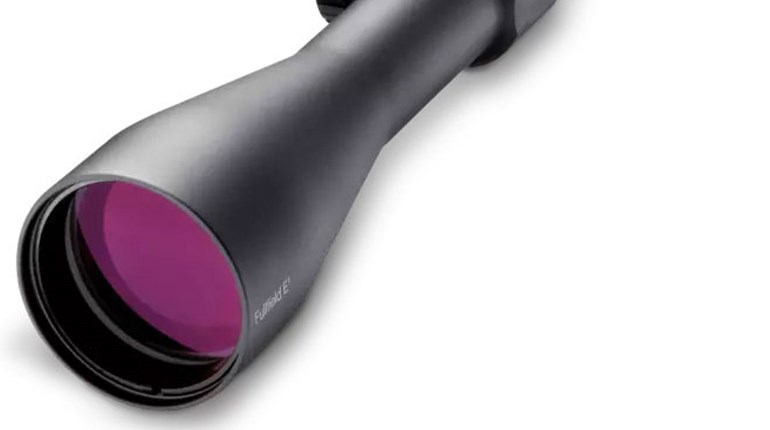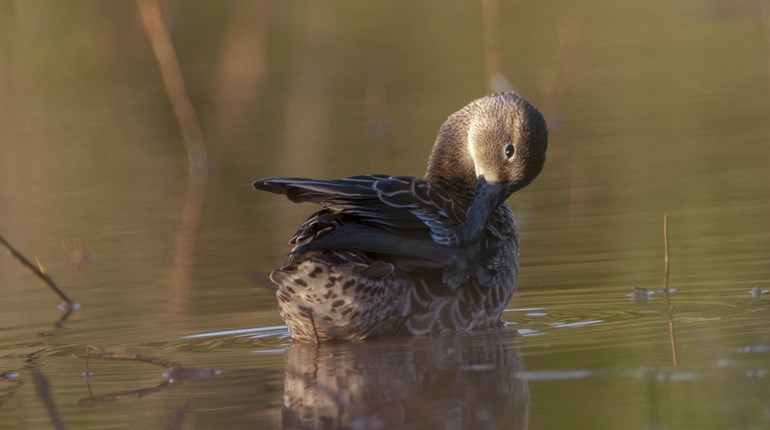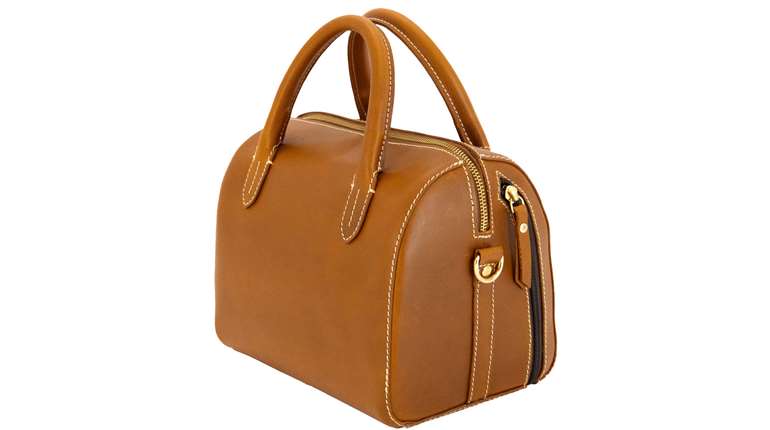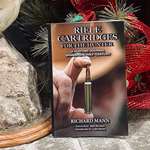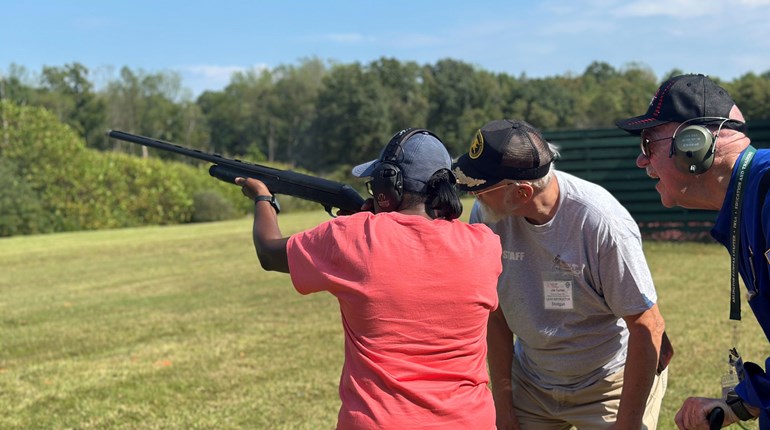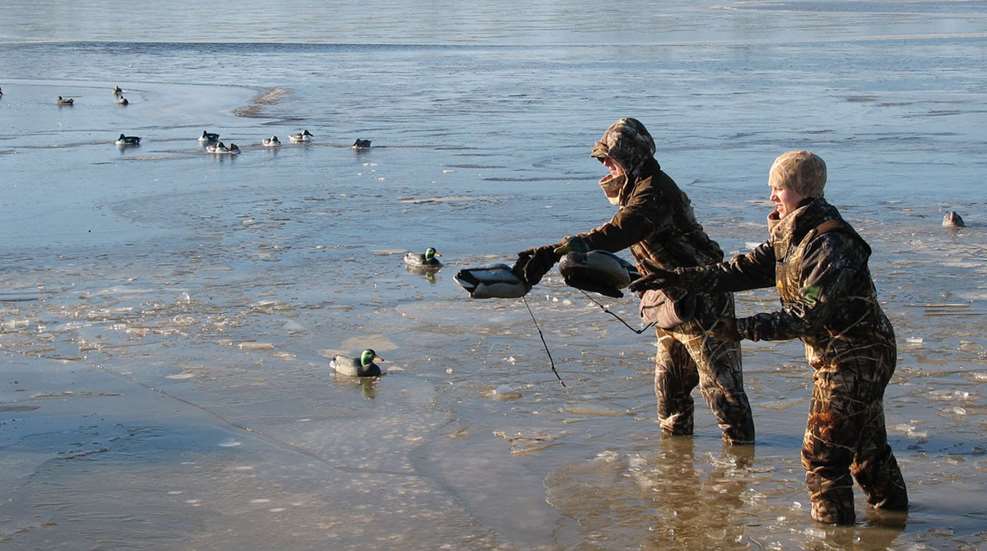
If you’re headed out on your first duck hunt, you’re in for a treat. Waterfowl hunting is its own particular brand of fun, offering a more social experience than many other types of hunts you might have already participated in. It’s also got some unique aspects to it that you’re probably not familiar with, and there a few things you want to avoid in order to make this the best experience possible. Don’t make one of these rookie mistakes on your first duck hunt.

1. Underdressing or Overdressing
Most of us don’t have infinite hunting outfits for every occasion, so we have to make the best of what we’ve got. That’s no problem, and layering is going to be your best bet here. Just be sure you’re dressed warmly enough for the cold conditions, and don’t forget it’s almost certainly going to be wet or at least damp, which amplifies the cold. If you’re wearing gloves, it’s best if they’re waterproof. That goes double for boots. Nothing will drive you out of the duck blind early faster than frozen toes and fingers.
If it’s warm out, like in early teal season, don’t overdress if you can avoid it. If you have the option, opt for breathable waders rather than neoprene in warm weather. Neoprene doesn’t breathe, and on a hot day, you’ll be dripping in your own sweat inside a thick, bulky pair of neoprene waders.
2. Forgetting That Your Gun Won’t Fit the Same
In order for you to shoot your shotgun well (and comfortably), it must fit you well. You probably already know this and have had your shotgun adjusted to fit you—that’s terrific. But just because you shoot that gun well on the skeet field in a T-shirt doesn’t mean you’ll shoot it equally well in December in a bulky parka. By the time you consider some underlayers and a thick wader strap over your shoulder, your length of pull has changed considerably. Your once-comfortable gun might be too long for you to shoot. There isn’t a lot to be done about this once you discover it, so the time to address it is before duck season. Your gun either needs to be shortened a little bit (it’ll be extra short when you’re only wearing a thin shirt), or you need an adjustable stock that lets you easily change the length of pull by adding or removing spacers. Or, if your budget allows, buy a new shotgun and set it up specifically for duck hunting.
3. Being Afraid to Call Because You’re New
Confession time: I’ve been duck hunting several times a year for almost a decade now, and I still don’t blow a duck call. I own several, and I’ve even gone as far as getting a calling lesson from not one but two world-champion duck callers—and still I’m too afraid to actually blow the call in the blind. Won’t everyone else think I sound terrible? Will I scare ducks away?
It’s time for me to let go of this hangup, and I don’t want you to pick it up. We’re only going to get good at duck calling by first being bad at duck calling. Don’t let fear of failure stop you from trying! When you’re ready, let whoever you’re hunting with know that you’d like to give it a shot, follow their lead on when and how to call, and let ’er rip.
4. Calling Too Much
I know I just encouraged you to give calling a try, but keep in mind that there’s definitely such a thing as too much calling. Knowing how often and how much to call really only comes with experience—by trying it out and seeing what works and what doesn’t, observing how the ducks respond, and listening to the griping of your fellow hunters. You’ll find your rhythm. In the meantime, if ducks are circling and you just can’t finish them, consider staying quiet and seeing if this is a time when less is more.
5. Shooting Too Soon
I learned this lesson on a flooded timber hunt years ago. About six of us girls were brand new duck hunters, and our guide was working a big flock of mallards that we were hoping would land in our honey hole. After what felt like an eternity of watching and waiting, a lone duck dipped in, and as the guide was stage-whispering, “Not yet,” one girl raised her gun and dropped the bird. We were all thrilled for her, while our guide was graciously saying “That’s okay” with a grimace as he watched a dozen birds fly away. They’d all been about to land and would have given every shooter shot opportunities if the too-early shot hadn’t scared them away.
Knowing when to take the shot is an important part of duck hunting. Waiting too long isn’t a problem—the birds will have landed, and you can just wait until they get up again to shoot them. But shooting too soon will cost you birds. You run the risk of scaring off other birds that are about to commit, or, worse, you might shoot when the birds are out of range. Not only will you almost certainly not hit that bird 70 yards away, but you’ll also guarantee that every duck in the area will just keep on flying past your setup. Shooting at birds that are too high is so annoying to your fellow duck hunters that it has a name: Skybusting. Don’t be a skybuster! If you’re a new duck hunter and you’ve got more experienced hunters in the blind with you, follow their lead on when to shoot. Usually one hunter per blind will be designated as the shot caller. If your group has named a shot caller, don’t shoot until that person tells you to, for the good of the whole group.












